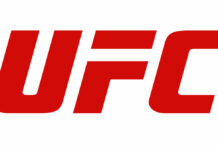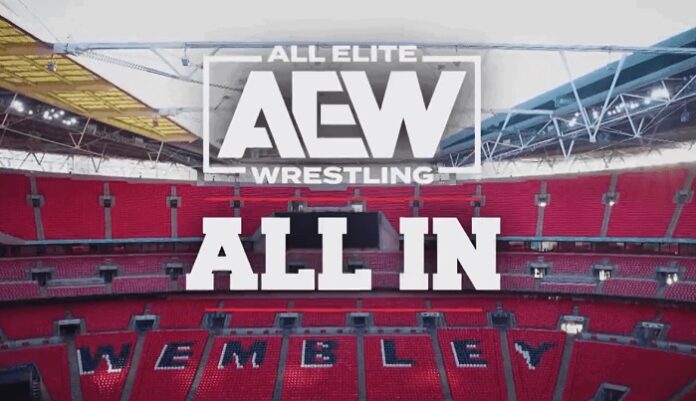
“Moving the goalposts is an informal fallacy in which evidence presented in response to a specific claim is dismissed and some other (often greater) evidence is demanded. That is, after an attempt has been made to score a goal, the goalposts are moved to exclude the attempt.” (Wiki)
Last week, tickets went on sale for Wrestlemania 40 (a two-night event) in Philadelphia. Since that time, over 90,000 tickets have been sold; which is quite a feat. Congratulations, WWE! This is further proof that pro wrestling is in a hot period right now.
Now what if my response to that was instead:
“Lincoln Financial Field? Pft. If they really wanted to impress me, they would sell out Michigan Stadium (capacity 107,601). Lincoln Financial Field doesn’t even hold 70,000.”
That would be a bad faith comment, correct? Right now, there have been over 90,000 tickets spread across two nights for WWE’s flagship event for next year. But if I truly believed the fictitious comment above, it would be incredibly disingenuous — and many would call me out on it.
This would be moving the goalposts. A phenomenon that happens more than it should in multiple entertainment mediums. For some reason, this happens to All Elite Wrestling almost all the time. So this begs the larger question: This doesn’t happen to WWE; so why does it happen to AEW on a near consistent basis?
Before we jump in, a disclaimer:
Who This is For
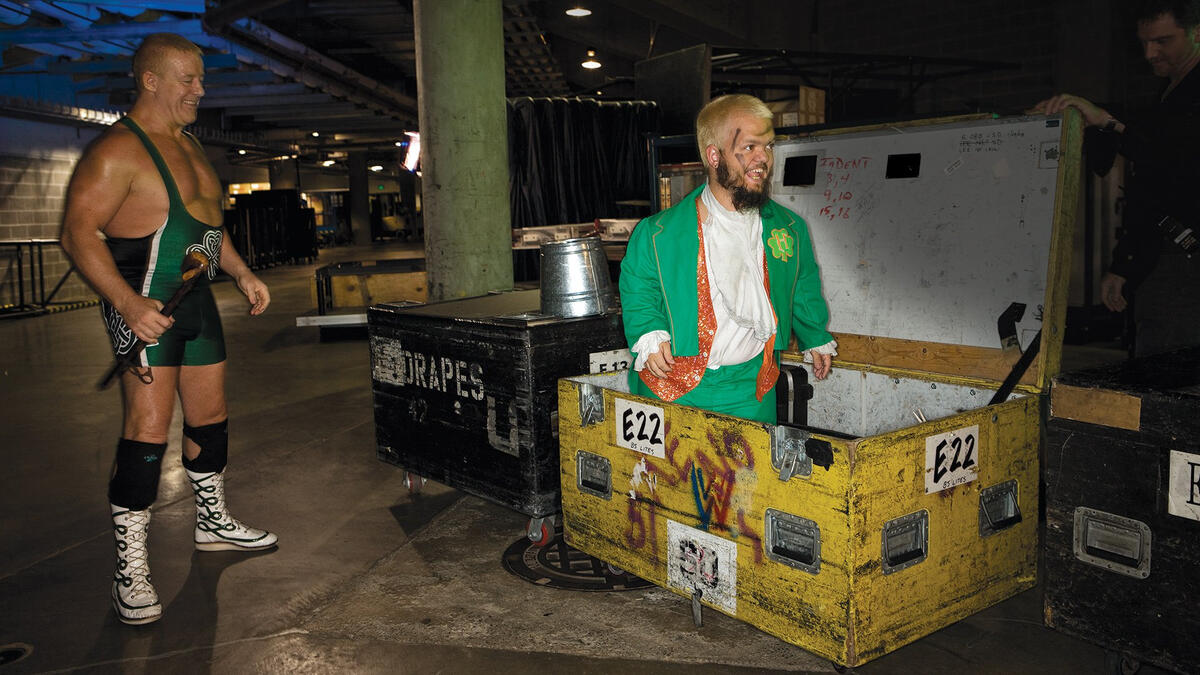
Both companies setting attendance/gates records left and right.
Pro wrestling is winning.
The fans are winning.
But most importantly and I think we can all agree on this, I’m winning. #Betterthanyou
— Maxwell Jacob Friedman™️ (@The_MJF) August 21, 2023
In our circle of friends, I have a guy who will be watching AEW All on Sunday In with his father and son. He is not terminally online. No tribal drama; just pure enjoyment of the product outside of the IWC. This represents most wrestling fans. I’d argue that even to this day, the majority of wrestling fans that exist do so outside of the internet wrestling bubble. Even for those who maintain some type of online account, only visit a handful of times per month.
This can be backed by multiple studies into users on Twitter/X. Similar studies report that only 10% of social media users make up approximately 90% of all posts.
In other words, the large majority of wrestling narratives; true or false, are being crafted by a small, but very loud minority.
This article is not so much for those offline, or those that can exist peacefully online and simply respect and be happy for both AEW and WWE. This article, is for that very small, but obnoxiously loud, minority of fans that for some reason — can’t seem to give AEW any credit.
And no, you really don’t see this behavior in WWE’s direction. They’re the top dog, and have been for decades. When they break records; it’s expected. Whether it’s increased TV ratings, or higher revenues; nobody is irrationally holding that success up to the Attitude Era and demeaning the company for not mirroring those gigantic numbers of yesteryear.
The goalposts aren’t moved for WWE; so why are they always moved for AEW?
A History of Goalpost Moving
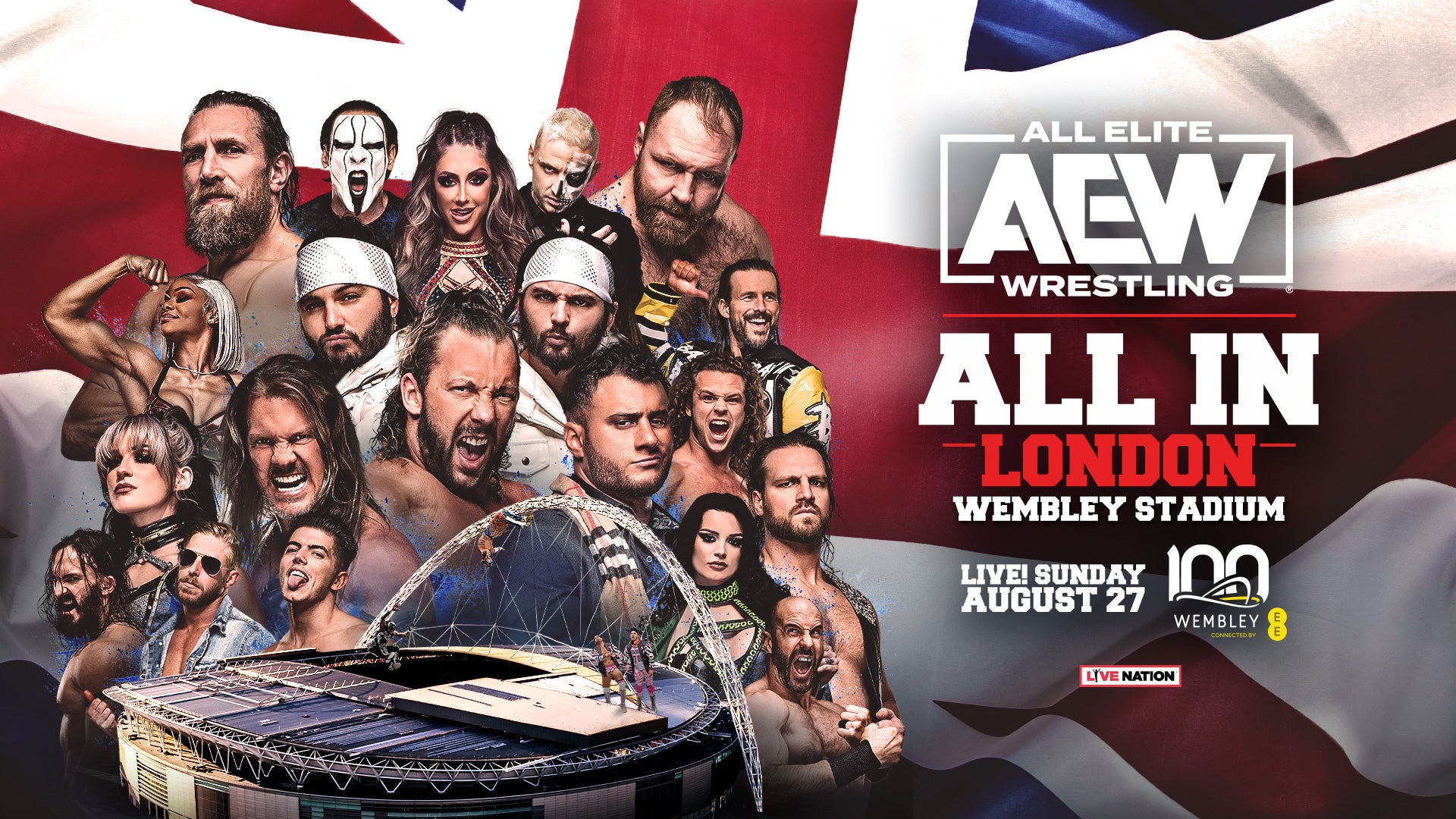
It started with Dave Meltzer in 2017. His comment that Ring of Honor couldn’t sell 10,000 tickets sparked a challenge. A challenge in which Cody Rhodes and The Elite responded to by selling over 11,000 at what would become All In 2018 in Chicago. Against all odds, AEW Dynamite would debut in October of 2019 consisting of many of those participants at All In.
And not long after, the goalposts started to move…
(AEW Dynamite regularly lands in the top 5 every week for cable.)
“Yeah, but it’s not a million viewers.”
(Rampage is added as a second show.)
“WBD is just desperate for cheap cable programming.”
(AEW Grand Slam Sells Out Arthur Ashe Stadium.)
“Pft. New York is a big market. Try selling out Metlife.”
(WBD asks for a Saturday show. Collision is born.)
“Stupid, you can’t compete with football. Nobody watches wrestling on Saturdays. Compete against Raw on Mondays and win that war, instead!”
(C.M. Punk arrives.)
“(Checks TV ratings) Yeah, but he’s not a needle-mover.”
(Weekly TV ratings level out a little bit)
“AEW isn’t growing! Ha! See?”
Author’s Note: When did so many wrestling fans turn into self-proclaimed business experts and care so deeply about AEW’s day-to-day operations?
TONIKAKU…All In…
Selling 80,000+ for any type of event is impressive, regardless of location. When AEW All In for Wembley was announced, most fans figured that 30-40,000 would be a success. Hell, I even assumed that 40,000 would be the likely ceiling. But ticket sales jumped to a whopping 65,000 pretty quickly. Soon enough, the single event record for most attended wrestling event (held by Wrestlemania 32 at 80,709) was in danger of being ousted.
Author’s Note: Attendance records are most accurately measured by police turnstile count. The Arlington Police measured 80,709 people that paid to gain entry into the Wrestlemania 32 show. This is the most reliable and legal way to truly measure attendance.
And by last week, sure enough, 80,846 tickets were sold for All In. Assuming these paid tickets lead to attendees, this event currently holds the unofficial record for most (paid) attended single wrestling event of all time.
And then the goalposts started to move…
“U.K. fans are starved for wrestling, and that’s the only reason why this show has sold so well. The card sucks, though. It doesn’t “feel” big enough. The build has been lacking. Oh, look, Wrestlemania 40 just broke AEW’s record by selling 90,000 tickets. Who cares if it’s spread across two nights!? We MUST find a way to spit on AEW’s accomplishments.”
Why is it so hard for some fans just to give a little applause when due? At almost every milestone AEW has hit, whether it’s TV ratings, large attendance figures, or new talent — the sentiment is always “Yeah, but…”
Nobody has to like AEW. But dismissing their accomplishments to fuel some weird tribal fetish that a small minority of WWE fans and critics have? Well, why is that? Here are some theories…
Theory #1: AEW is What Some Wanted WWE to Become

Let’s be honest with ourselves: The WWE product from 2008-2018 was pretty questionable at most times. While they have a hot product now, as someone who watched WWE through the 80s until 2019; their better years were behind them at that point. Many online fans clung to NXT as the “best” wrestling product out there for many years.
NXT combined a stiffer, half puro/half Indies inspired in-ring style with the WWE formula. By swooping up some of the hottest talent from the Indies scene at the time (Adam Cole, Malaki Black, Sami Zayn, Kevin Ownes, etc.) the brand truly set itself apart from Monday nights. The next NXT callup would always be the source of internet excitement.
This was the future. It’s why so many fans like myself gravitated to NXT over Raw or Smackdown. It was the internet’s favorite wrestling promotion.
Until suddenly, the callups, the hype, the names — it all didn’t seem to pan out. At the end of the day, Roman Reigns and Brock Lesnar ruled the day, and guys like Cole, Black, Joe, Balor, etc. were all an afterthought. For many, including myself, it was the ‘same-ol’-WWE’.
Enter AEW. AEW shares similarities to NXT beyond color scheme. It was, and still is, that PWG/New Japan hybrid, but without the WWE flare. The in-ring product is usually top-notch, and you normally don’t see big beefy boys in the main event picture. Like NXT, the in-ring product was a bit valued over the flash of sports entertainment.
Could it be that some of these vocal minorities are bitter that WWE never really adopted an NXT-like style? These fans wanted WWE to improve — not for a new promotion to exist to challenge WWE.
“Man, I wish WWE were booked more like NXT.”
*AEW is created*
“No, not like that.”
Theory #2: “Look at me, I’m Important.”
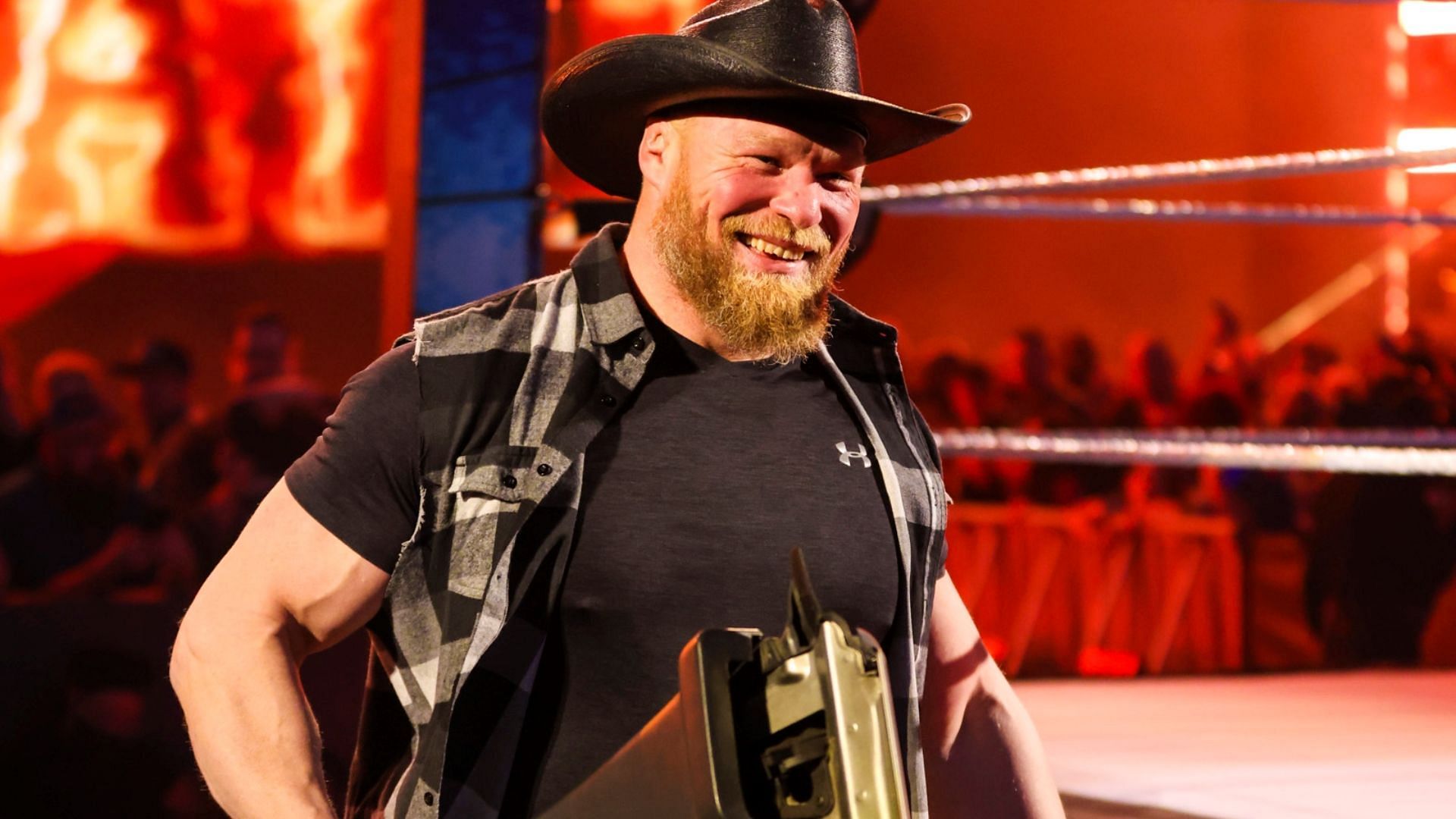
There was a time that WWE was roasted online on a daily basis. It’s as if these same fans turned their ire towards AEW instead. But why? Is it the classic N.I.M.B.Y. acronym? “Not In My Backyard! “Another major wrestling promotion can’t exist — that’s too much work and investment.”
Is it fear of missing out of the latest wrestling trends? After all, AEW has brought in a style of wrestling and handful of gimmicks that one would never see on WWE television. But for some critics, it’s simply labeled as “garbage Indies” wrestling with a level of META that doesn’t appeal to casual fans — therefore, nobody should take it seriously.
For many, it’s easier to tear down something they don’t understand or enjoy instead of simply acknowledging that it has its rightful place.
Or is it just the need for desperate self-validation?
Folks get on their digital soapboxes, and rant about analytics and TV ratings as if they’ve just come out of a board meeting with Tony Khan himself. Imagine if you put time and effort into criticizing the direction and finances of a sports team you don’t even like.
Wouldn’t that be weird? Possibly even sad? But as always, this leads to the third and final theory: tribal brain.
Theory #3 Tribal Brain
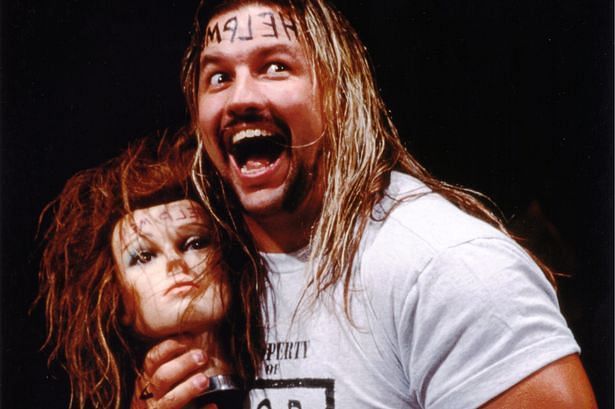
The most common response by many who aren’t completely lost. But I’m sorry, excusing petty behavior because of tribal brain is not acceptable here. Even though this has a place in science, it’s a behavior that can be corrected at its extremes.
As Psychologist Jessica Koehler Ph.D once put it in an article about tribal brain for Psychology Today:
“Confirmation bias is the inclination to seek information that supports our presumptions, typically by interpreting evidence to confirm existing beliefs while rejecting or ignoring any incompatible data. The tendency toward conformity combined with our propensity to verify our beliefs affects human behavior in a digitally connected world driven by social media and one-sided news media.”
I can excuse tribalism on the basis of preference. On a fundamental level, I am a part of the ‘AEW Tribe’. However, it doesn’t mean I have to act out against the other tribe simply because they aren’t a part of ours. I am not going after WWE’s booking, demeaning their talent, downplaying their success, and consistently moving the goalposts on them.
For those who take part in disingenuous tribalism on both sides, it likens them to Al Snow. A raving lunatic that takes orders from a mannequin head, in this circumstance, known as the actual tribal brain.
Why be fair and credit a company and get little attention when you can instead disingenuously discredit the same company in bad faith, and receive way more attention from your other tribal peers, and their opposites?
None of This Really Matters
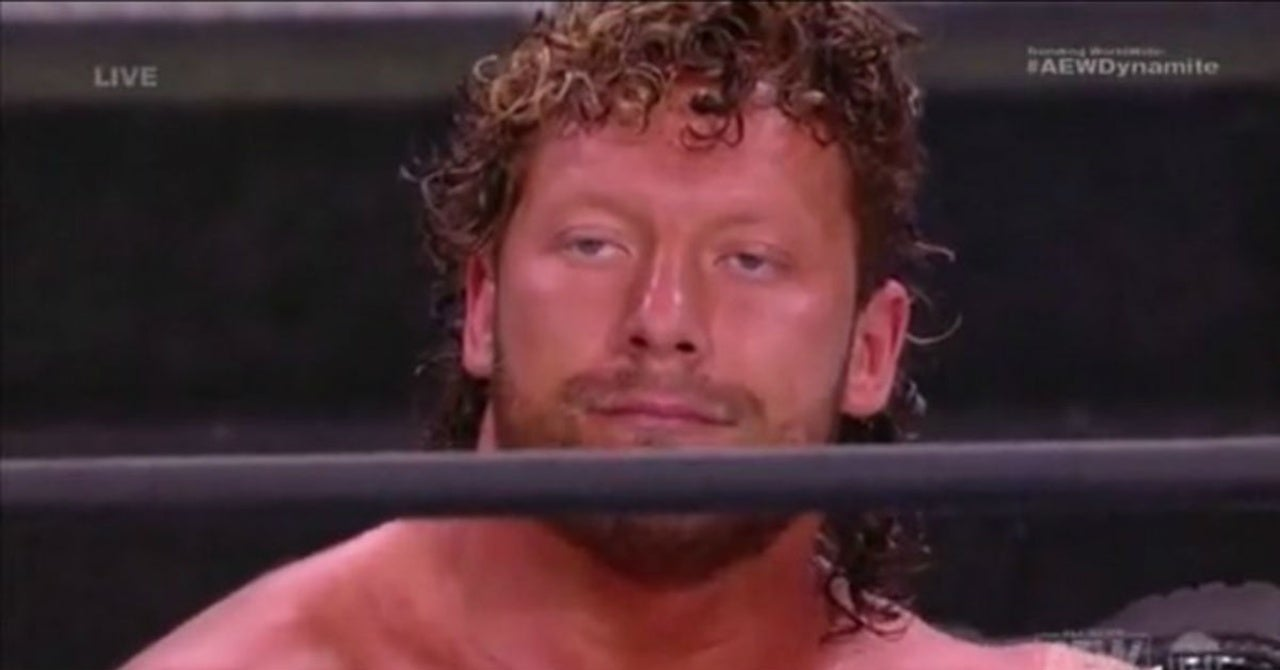
I’m no stranger to writing about internet wrestling fans. It’s both fascinating and enraging at the same time. But at what point does being so tribal stop being fun? You can’t call yourself a level-headed person to be taken seriously when your takes are completely laced in low-brained tribalism.
I’ve said it before, and I’ll say it now for the record:
WWE is the #1 company in the world. I applaud their recent string of success. I hope professional wrestling can continue to thrive as both companies have in the past two years. Even if I am not a fan, I will keep watch from a distance, and focus on the wrestling companies I simply enjoy more.
If I can make that statement above in good faith, why is it so hard for others to do the same, but for AEW? As far as the theories presented, it’s probably a mixture of all three as to reasons why the goalposts always seem to be moved on AEW by a small, but vocal minority of fans.
But at the end of the day, through all the criticism, and “expert” opinions by those not even in the industry, what is left?
AEW is a company not even 5 years old that will nearly sell out Wembley Stadium on Sunday. In spite of their growing pains and sometimes questionable management — they’re still here, and in a very strong financial place with an avid fan base.
And maybe that’s the entire point. The goalposts keep getting moved, and AEW and their loyal fans are simply going around them instead of trying to cross them.
What do you think? Share your thoughts, opinions, feedback, and anything else that was raised on Twitter @PWMania and Facebook.com/PWMania.






